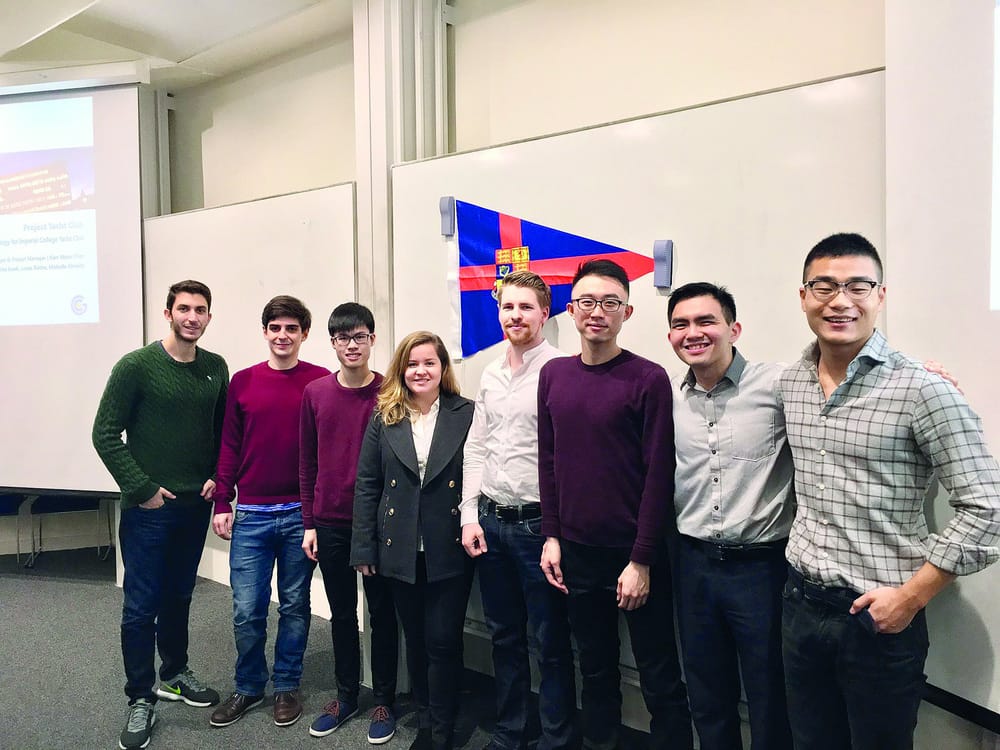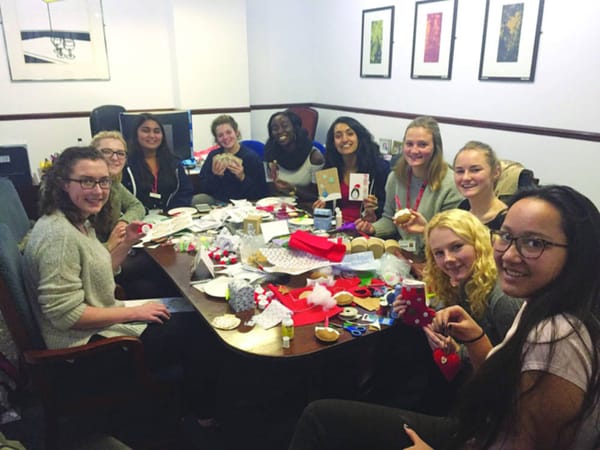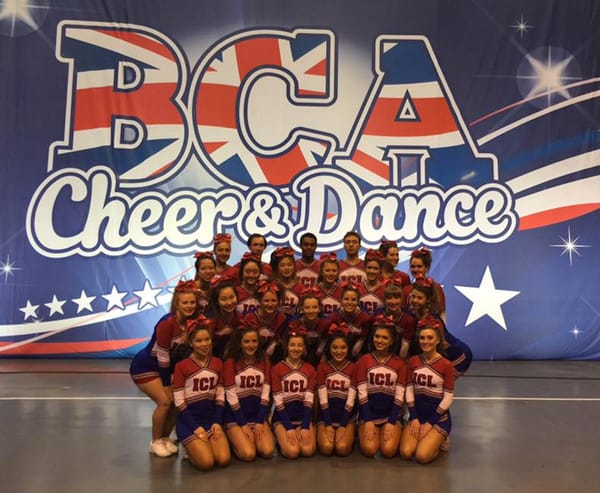Club developments going smart
Yacht Club is back and wants you to know

The membership base of the Imperial College Yacht Club had shrunk over the past five years and the new committee of the yacht club are eager to find solutions to improve this situation as well as the club’s operations.
After a summer-long discussion within the yacht club, potential areas of development were identified, such as participating in regattas overseas and introducing yachting courses to Imperial students. Unfortunately, as soon as the academic year began, the yacht club started to focus on its existing yachting activities. Those seemingly ambitious plans were suspended due to lack of capacity.
An occasional opportunity put the yacht club in contact with the Imperial Consulting Group (ICG), an organisation run by Imperial students. The yacht club then engaged ICG in the hopes of delivering systematic strategies to offer better services to its members. The collaboration process started with a kickstart meeting between yacht club committee and ICG consultants. During the meeting, the yacht club’s operations were presented to ICG to better understand the existing issues and objectives.
Since then, the consultants have worked on the project collaboratively and updated the yacht club committee through frequent discussions. The ICG consultants have also received training and mentorship from L.E.K. Consulting, a leading global strategy consulting firm. Despite startimg with modest consulting backgrounds, the ICG consultants quickly picked up the skill set along the project.
During the project, ICG first conducted the feasibility study of delivering the Royal Yachting Association (RYA) yachting courses to Imperial students. Offering yachting courses is an important part of the development strategy as it adds a new source of income to the club. ICG then proposed a roadmap of introducing the RYA course based on different costs and human resources options. According to the plan, by delivering the courses the yacht club itself will become an RYA-certified training centre, able to conduct yacht trainings globally.
The consultants then focused on membership study and branding analysis for the yacht club. Consultants compared the yacht club against other sports clubs at Imperial and other UK universities in order to understand the relative position of the yacht club. An indicative survey, which received over 110 responds, revealed the yacht club’s public perception in areas such as the quality of activities, membership cost, trip prices, social media communications, and etc. Although seen as an expensive sport, many students are interested in yachting and are willing to give it a try.
In order to understand how yacht clubs are operated in other top universities, the yacht club arranged an interview for ICG with Dr Paul Wedrich, the former vice-commodore of Cambridge University Yacht Club. During the meeting Dr Wedrich talked about the history of the Cambridge University Yacht Club, and how the club developed, step by step, towards owning two yachts, and generating an annual turnover over £100,000. The interview was obviously inspiring, but also implied the importance of development strategy for a student club. Nevertheless, the interview seeded the goodwill of yachting collaborations in the future between Cambridge and Imperial.
Lastly, ICG developed a five-year growth strategy for the yacht club based on the insights from the investigations and analysis. After approximately ten weeks, the final deliverables of the consulting project were organised and formally presented to the yacht club’s committee. Some of the highlights of the five-year growth strategy include the offering of yachting day trips, more competitive membership fee and reasonable pricings.
Yacht club’s president was thrilled with the results and described it as “a wonderful success” and that it “shines a light on the yacht club’s future development”. After the successful presentation, consultants from the project were offered committee positions within the yacht club. In the yacht club’s general opinion, they are the right talents to lead the implementation of the study results. One consultant has already accepted the offer, and commented that “it will be an entirely new experience to join the client side, but we will learn to adapt and create values where possible.”
The yacht club has already started implementing the strategies. Their racing team, Team Imperial, is participating in the world’s biggest student regatta in France this April. Also, an initial collaboration with the Cambridge University Yacht Club is likely to launch next academic year, focusing on yachting trainings. Meanwhile, ICG has started its second-round spring projects. ICG is actively seeking consulting projects from societies within the Imperial Union, hoping to provide aid to any issues ranging from long term growth plans to feasibility studies, offering value through students with varied backgrounds and perspectives.
To learn more about Imperial College Yacht Club and Imperial Consulting Group, please do visit the respective websites below:









